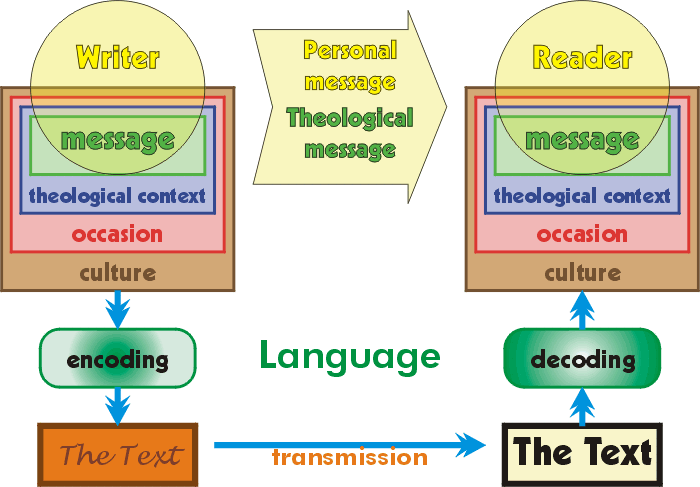What is Hermeneutics? Part B
Models of Hermeneutics cont’d
- Now we add in some more levels of complexity
- context
- culture
- occasion
- theological system within which the writer is operating
- personhood
- the human author (whom we cannot know, but can learn to appreciate)
- the ultimate divine author

It is really important to see that the Scriptures are fully human and fully divine at the same time.
If we leave out one of these, it will distort our interpretation
Questions to ponder?
- are the two kinds of message ultimately different? What is the difference between them?
- are they both limited to propositional truth?
- is there a need to study the culture / occasion etc. of the reader?
- are the boxes necessarily within one another?{theological content of a book often transcends the occasion, but must be studied in its context}
- to what extent can the writer transcend the boxes?{human cannot, but divine can}
- is there truth in the literary form, or only in propositions?
- Short Defn of Biblical Theology
“Biblical Theology allows the Scriptures to provide not only the content but also the structure of our theology.” - it does this by looking for structure and organization already there within God’s revelation, such as development through time, collections of writings from a single author, structured presentations of truth within a book, and literary features.
- Short Defn of Biblical Theology
Updated 2009-10-09 (build:9) by Andrew Fountain